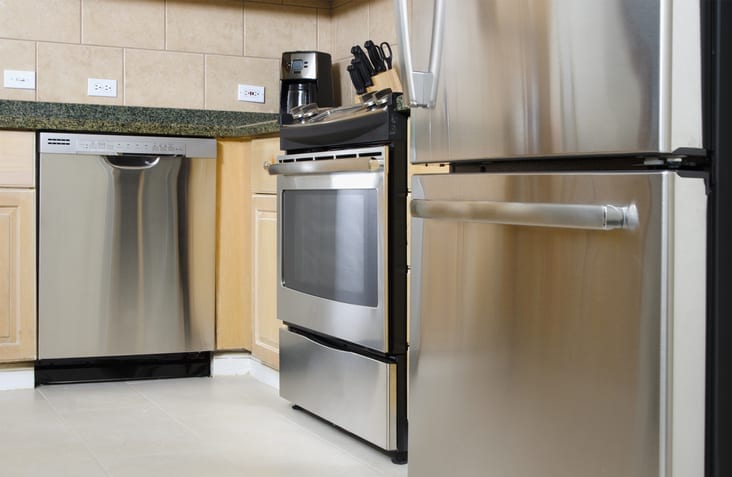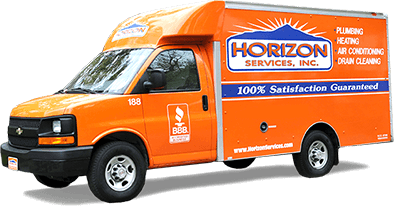
Your Icebox May Be Wasting Energy…and Costing You Money.
What’s one of the biggest energy guzzlers in your home? Your friend the refrigerator. It’s always running. It’s got all kinds of fans, lamps and moving parts. It makes a lot of noise. Face it…it may do a great job at keeping your delectibles cold, but it’s an electricity vampire! In fact, your refrigerator-freezer can account for as much as half of your overall electric bill.
Our expert technicians are here for youSchedule Online Today
The harder your refrigerator or freezer has to work, the more energy it will consume. But with a little simple maintenance, you can greatly decrease the load that is placed on your fridge.
Here are a few simple tips that can reduce your fridge’s energy consumption by as much as 30% each month (or up to $20 per year):
- Upgrade to an Energy Star-Qualified Refrigerator: They use at least 15% less energy than typical refrigerators on the market.
- Go With a Top or Bottom-Mounted Freezer. They use about 20% less energy than side-by-side refigerator-freezers. Also, try to avoide automatic icemakers; they use twice as much electricity than standard freezers.
- Fill ‘er Up. Fridges and freezers are more efficient when full. And in the event of a power outage, they’ll hold the temperature for twice as long as if half full. Just make sure that you don’t overfill; leave some room for cool air to circulate.
- Let Hot Foods Cool. Hot foods will draw cool air from inside the refrigerator or freezer, causing the appliance to have to work harder to add more chill. Let foods cool to room temperature before you put them in the fridge or freezer.
- Use Glass for Storage. Glass conducts and holds cold better than other materials. Storing food in glass containers keeps it colder longer. The more cold the refrigerator or freezer can maintain, the less it needs to produce.
- Locate Refigerators and Freezers Away From Heat Sources and Direct Sunlight. For every degree above 70 degrees surrounding your fridge, it will use 2.5% more energy. If you fridge is near anything that exposes it to unnecessary heat — a window, an outside wall or an oven — it pays to move it to a cooler spot.
- Clean the Coils. Build up of dust and dirt on coils at the bottom and back of the unit causes it to work much harder and run for longer cycles. Vacuuming this dust off 2-3 times per year can reduce energy consumption by up to 6%.
- Keep Door Seals Air Tight. A great deal of cold air can seep through worn or damaged door seals and gaskets…and that’s like watching money go down the drain. To check your seals, close the door on a piece of paper. If the paper can be pulled out easily, the seal is worn and needs to be replaced. An easy way to keep seals in good shape is to lubricate them periodically with petroleum jelly to keep them from cracking or drying out.
- Defrost Freezers Regularly. Frost buildup greatly increases the amount of energy needed to keep the motor running, so it’s important to defrost at regular intervals. Twice a year is typical for most freezers; however if frost has built up to a thickness of 1/4″ or more, it should be removed.
- Don’t Keep Your Refrigerator or Freezer Too Cold.Recommended temperatures are 37° – 40°F for the refrigerator and 0° – 5°F for the freezer section. If you have a separate freezer for long-term storage, it should be kept at 0°F.
- Buy a Refrigerator with Automatic Moisture Control. These models prevent moisture accumulation on the cabinet exterior without the addition of a heater. (Note: This is not the same thing as an “anti-sweat” heater; refrigerators with an anti-sweat heater can consume 5% to 10% more energy than those that don’t).
- Keep Foods Covered. Cover all liquids and wrap all foods stored in the refrigerator or freezer. Uncovered foods release moisture and make the compressor work harder.
- Give Your Appliance Some Space: Allow at least 1″ of space on each side of your refrigerator or freezer freezer to allow good air circulation.
- Label Your Food. Mark items in the refrigerator or freezer for quick identification so that you don’t have to keep the door open longer than necessary. Keep more frequently grabbed foods and beverages up front.


